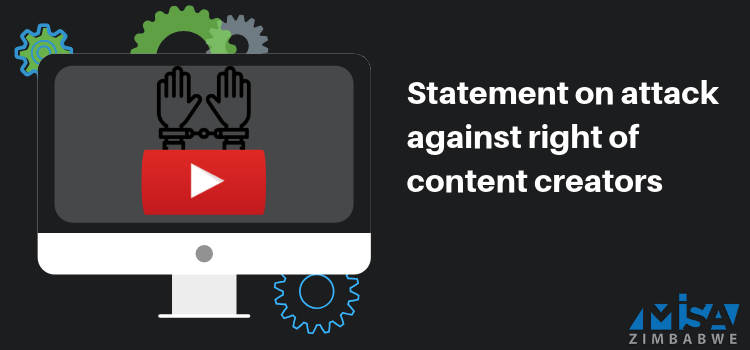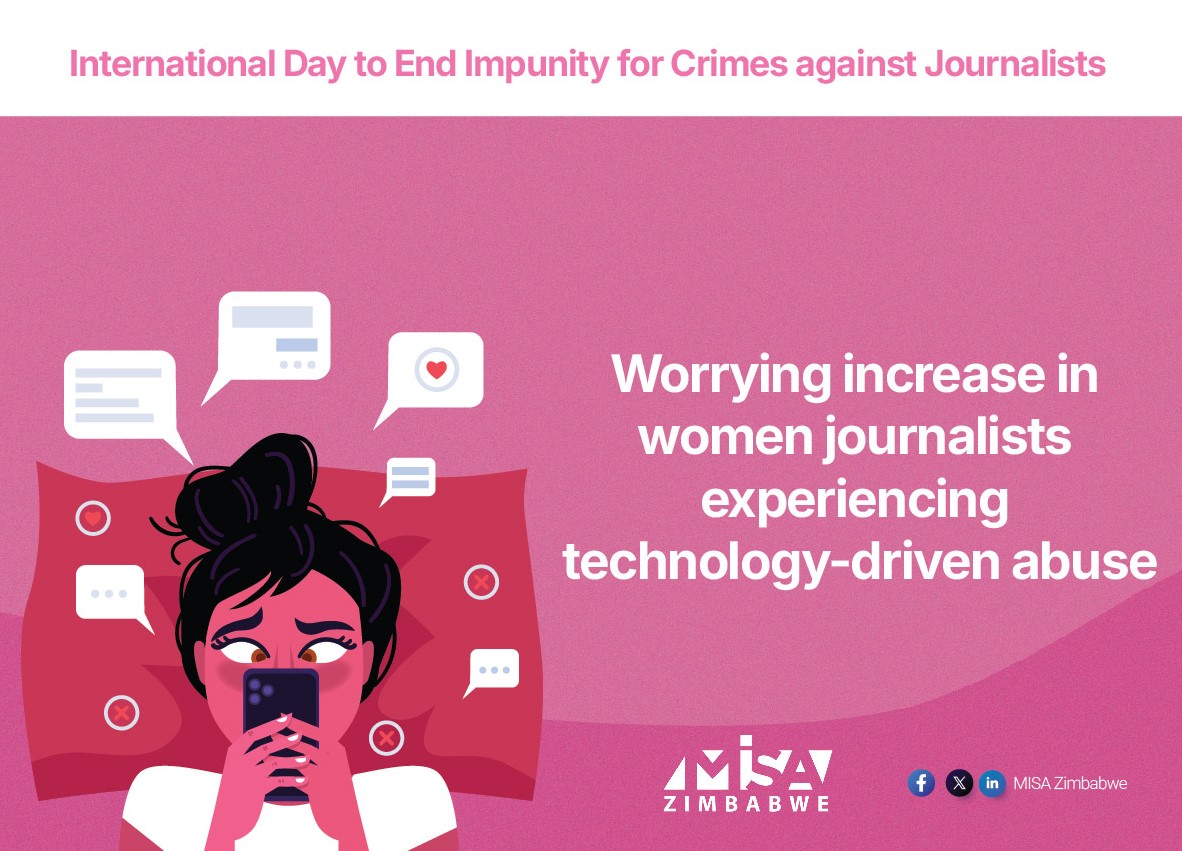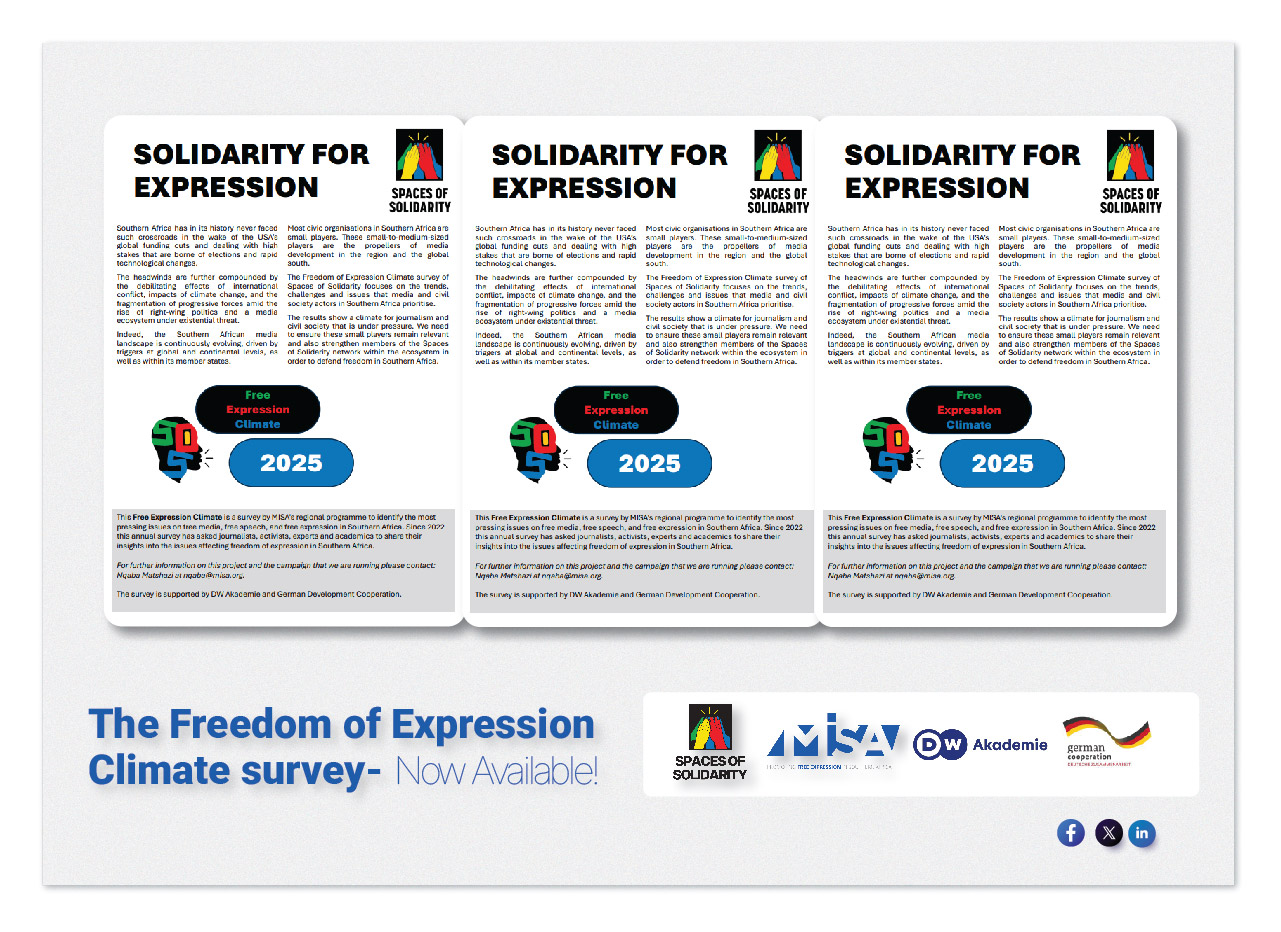The detention and charge of criminal nuisance against Bustop TV comedians Gonyeti and Magi (real names Samatha Kureya and Sharon Chideu) over a three-year-old skit made headlines this week.
Police charged the pair with criminal nuisance for disturbing public peace by wearing clothing that is confusingly similar to police uniforms.
The Police Act rightfully prohibits the unauthorised use of police uniforms and regalia. This prohibition includes the use of clothing items that are confusingly similar to police uniforms.
However, the three-year delay in charging them for a skit produced and released in 2016 gives the impression that the arrest had less to do with the actual crime of unauthorised use of a police uniform and more to do with the need to inhibit or censor the organisation’s activities.
In other words, the arrest is likely to be perceived as an attempt to discourage free expression through protest art forms such as theatre, drama, satire, and comedy.
MISA Zimbabwe utilised its Media Defence Fund to assist the pair to pay the imposed $40 admission of guilt fine. The right to free speech is a fundamental right that extends beyond routine communications to include protest art, satire and other forms of creative and expressive art.
This is why their precedent-setting arrest and charge is of concern to us as a freedom of expression focused organisation.
Internet-based tools such as YouTube, Facebook, and Twitter have promoted the rise of a new crop of content creators who discuss Zimbabwe’s current socio-economic situation through creative forms of expression.
Creators such as Bustop TV have chosen to use satire and comedy to provide much needed social commentary and this should be encouraged not suppressed. Zimbabwe has traditionally been unkind to people that express dissenting opinions against the government, and protest artists are no exception.
MISA Zimbabwe is by no means advocating for the deregulation of the content creators’ space, however, we are calling for regulation that promotes free expression instead of shutting it down. If Zimbabwe is to be a truly constitutional democracy, the right to free expression must be embraced within its constitutional limits.
Zimbabwe currently relies on aged legislation such as the Censorship and Entertainment Controls Act to regulate the creation and distribution of media content. However, this Act is failing to adequately keep pace with the regulation of media created and distributed on digital platforms such as YouTube, Facebook, and Twitter.
MISA Zimbabwe submits that it is time Zimbabwe revamped its media content creation and regulation laws to reflect the technology-driven changes that have reshaped the media and information landscape.
This call is further necessitated by the fact that online content creators, including citizen journalists, are challenging the traditional notions and definitions of media practitioners. Currently, these online content creators fall outside the scope of the country’s media laws. This absence of adequate laws leaves space for the continued infringement of the online content creators’ right to freedom of expression and the citizens’ rights to access alternative views and opinions.
//END













